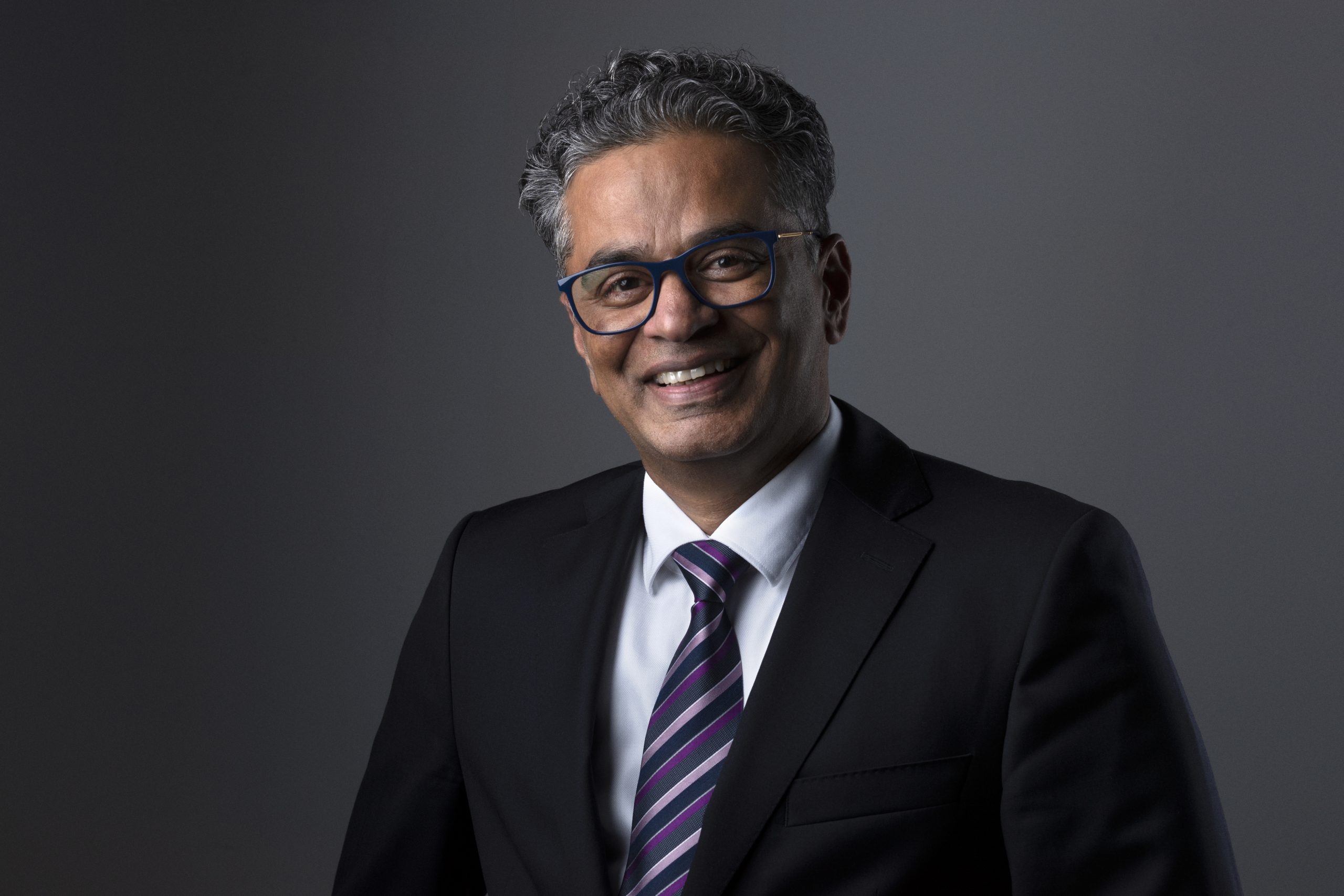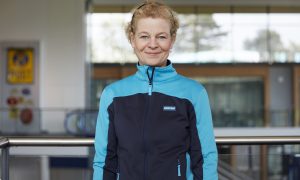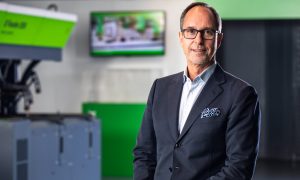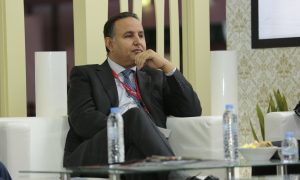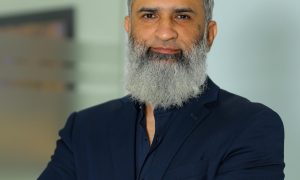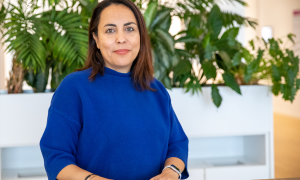France-based Winoa Group, formerly known as Wheelabrator Allevard, specialises in steel abrasives and surface preparation. Over the last six decades, the company has grown into a market-leading global player. We spoke with CEO Ramesh Krishnan to discuss the adaptations required for such sustained success.
Established in 1961 as a joint venture between Bell Intercorp (USA) and Société des Hauts Fourneaux and Forges Allevard (France), the Winoa Group began solely as an abrasives manufacturer. This refers to steel particles that are used extensively for cleaning applications, surface preparation, stone cutting, and other industrial purposes. Over time, the company diversified into peening products widely used in the automotive and manufacturing services industries, maintenance of blasting equipment, and more recently, a variety of related technological innovations.
Current CEO Ramesh Krishnan joined the company in January 2020, following a twenty-year executive career of considerable scope. It was, of course, an interesting time to take up a senior executive post.
Coronavirus and I entered the scene hand in hand, I was very keen on the opportunity at Winoa, but obviously, it was a challenging period, in some ways, for everyone.
He has 28 years of professional service, including 20 years of successful CEO roles in corporate and private equity assets. He served in additional governance roles as a board member and chairman. Ramesh has built his career on European manufacturing assets (with global operations) in special situations and rapid transformations. He has a strong track record of global M&As. His career stints include listed firms and hidden champions. An engineer by trade (Dipl.Ing., TU Karlsruhe, Germany) gaining executive education in LBS (London) and Insead (Fontainebleau), he is 51 years old and lives in Munich, Germany. He cherishes astronomy and guitar as hobbies and focuses on Industry 4.0 & AI for future investments.
“My career immediately before Winoa was very much about American capital and European assets, then taking and polishing these hidden diamonds, repositioning these companies to make them globally significant. I mean that financially, marketwise, the whole package. A lot of this relates to modern trends in zero carbon and digitalization, how you marry the old school with the new school, how to move from brick and mortar to click and mortar whilst repositioning into rapidly evolving market applications. These are the challenges of modern commerce in all sectors, and this, of course, stood me in good stead for the role at Winoa.”
At the time, Winoa was already a market leader, with around thirty percent of the global market share and a long tradition of success. Although this made the company an attractive proposition for an incoming executive, it also presented challenges. When joining a company in such a dominant position in its sector, the question is whether that can be maintained.
“The market paradigm was shifting,” Ramesh explains, “and so my role was going to be about ensuring Winoa could shift with it. We knew that some adjustments would be needed, because so much all around us was changing. I could see immediately the need to bring in more digital processes and digital models, for example. The company was ready for the next level of evolution.”
Ramesh began work with very specific targets in mind, which he called ‘Agenda 2025’. A core element of this five-year plan was to cut costs and push growth at the same time—an ambitious project, but one he had full confidence in realizing. However, he soon found himself coping with the onset of the global pandemic. Just three months after starting his new role, national lockdowns were introduced across the world, stifling commerce and breaking supply chains.
Despite this, Ramesh was able to prioritise, remaining steadfastly focused on his longer-term vision. Much of this centred around digitisation, alongside an increased emphasis on technological diversification. The company wanted to move away from its origins as a single product provider and begin the journey towards becoming a diverse, agile and sustainable sector leader.
“I had many experiences in my past career,” Ramesh reflects. “I worked in South America and went through hyperinflation, and I have worked in war conflicts in APAC, so you know, the crisis is a relative term. When COVID struck, I knew I needed to very carefully structure things and provide a framework for the future. This is important for individuals. We had to remain in control of everything.”
Despite the pandemic’s effects, Ramesh was therefore still able to deliver on his objectives. Naturally, difficult decisions were taken, such as cost management and rapid restructuring. Yet the speed and decisiveness with which the company responded to COVID helped to streamline operations and enabled a leaner Winoa to weather the coronavirus storm better than most. While others responded with fear and tightened their belts, the company even used 2020 to invest, developing new technologies and enforcing high-margin derivatives mainly used on lightweight and electric vehicles, which has proven to be successful.
You have to try to keep moving forwards. There can be an opportunity in crisis, and at any time, stagnation is death.
Additionally, internal practices were modified for the new business environment created by COVID. Standard operating procedures and performance took priority. Lean management practices and HSE were deployed very promptly. Taking a broad view, the CEO likens his approach to sailing a transatlantic yacht.
“I sail recreationally,” he says. “And when you are the captain of a vessel, you learn that when the weather gets rough, the instructions have to be very clear. The flow of command must be extremely precise, or the yacht can sink. As the wind changes, everyone needs to trust the skipper. I think this is a nice metaphor for the pandemic.”
With coronavirus successfully negotiated, at least for now, and progress already made, the rest of the CEO’s Agenda 2025 can take shape. As Winoa heads into the next three years, the base is for a focus on culture and shared vision within the company. Firstly, the Agenda of Offer expansion will evolve Winoa into a products, solutions, and service company. Secondly, the digital Agenda spins us
to the cutting edge of internal and external services with modern digital tools. The third element is sustainability, which Ramesh refers to as the green agenda. All three pillars are already in deployment in various phases to rejuvenate Winoa Foundation for the future.
“We are extremely successful in recycling,” he says. “Already, 95 percent of our raw material is recycled. But we are very conscientious about all aspects of sustainability, and we will continue to push all of these angles in our ‘green agenda’ roadmap.”
Through a combination of these practices, Winoa Group has utilized the COVID crisis and related ramifications to reposition ever better than before. “Speed, structure, and transparency matter. Above all, a high-performance team with the strategic purpose of Agenda 2025 has propelled us to this success despite the crisis,” says Ramesh.
“Winoa is taking the road from a hidden champion to become a visible champion,” the CEO says proudly. “Backed up by our offer agenda, our green, and digital agendas, along with our partners around the world, and all our employees, we are shaping the future together.”
Click here to read and download the full article.

